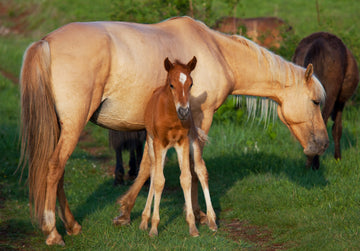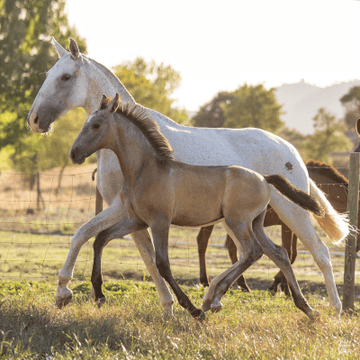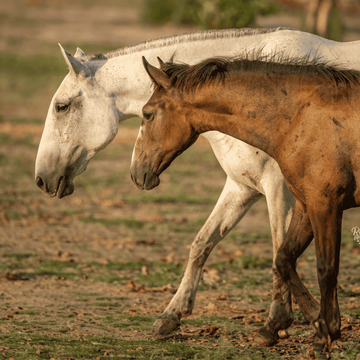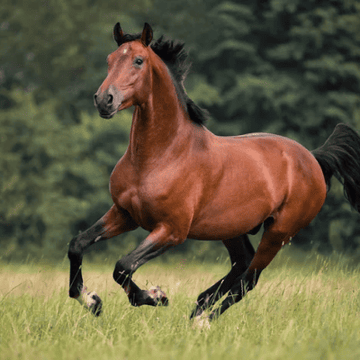Today, it is well known that the nutrition of broodmares plays a key role in both their fertility and the health and growth of the foal. Their nutritional needs differ from those of other horses, making them a special group requiring specific dietary care.
Body Condition
Assessing a broodmare’s body condition helps estimate her fat reserves and monitor the nutritional plan, and should therefore be done regularly.
Studies have shown that medium to high body condition scores (minimum score of 5 on the Henneke Scale, which ranges from 1 to 9) and increasing condition are associated with:
-
Higher fertility rates
-
Earlier resumption of estrous cycles
-
Fewer cycles per conception
-
Shorter foaling intervals
Body condition also affects productive performance. Broodmares scoring below 5 lack sufficient fat reserves to optimize milk production. On the other hand, mares with medium to high scores at foaling tend to produce more milk, benefiting the foal's growth.
Nutritional Needs of Broodmares
Broodmares can be maintained with a suitable maintenance feed and high-quality forage when not pregnant or during early pregnancy (up to the fifth month). From that point on, they should receive a specific feed to increase nutrient intake, especially protein.
Gestation
From the seventh month of gestation, fetal development accelerates—especially muscle and bone tissue—resulting in a significant increase in nutritional demands, particularly:
-
Energy
-
Protein
-
Minerals: calcium and phosphorus
At this stage, it is essential to provide feed that also contains iron, zinc, copper, and manganese. The need for vitamin A also increases, especially if the mare does not have access to pasture.
Antioxidant Support
Free radicals can negatively impact reproductive processes such as:
-
Oocyte maturation
-
Fertilization
-
Embryonic development
Therefore, antioxidant supplementation—with vitamin E and selenium—offers reproductive benefits.
Supplementing with vitamin E during late gestation and early lactation also strengthens the foal’s immunity by supporting the transfer of passive immunity through the colostrum.
Fat Supplementation
Adding fat to the diet is an effective strategy when there's a need to increase digestible energy without raising concentrate intake. It's recommended to use fat sources rich in Omega-3, which studies associate with:
-
Follicular growth
-
Embryonic development
-
Colostrum quality
Lactation
Nutritional needs remain high during lactation, so it is crucial to provide a specific feed. Failing to meet these needs may lead to reduced milk production and loss of body condition, which could negatively affect the following breeding season.
Conclusion
Understanding and meeting the nutritional needs of broodmares brings reproductive and productive benefits, supporting the healthy growth and development of foals.



